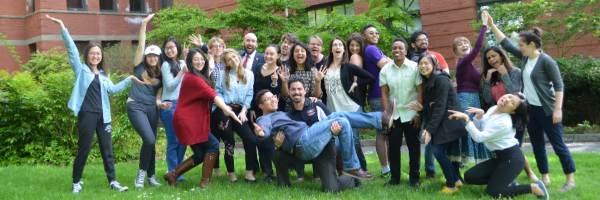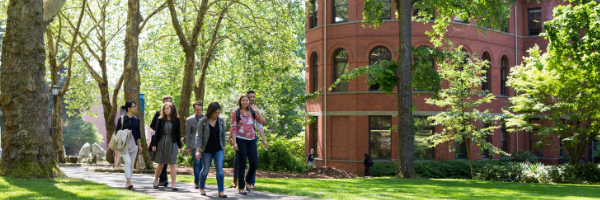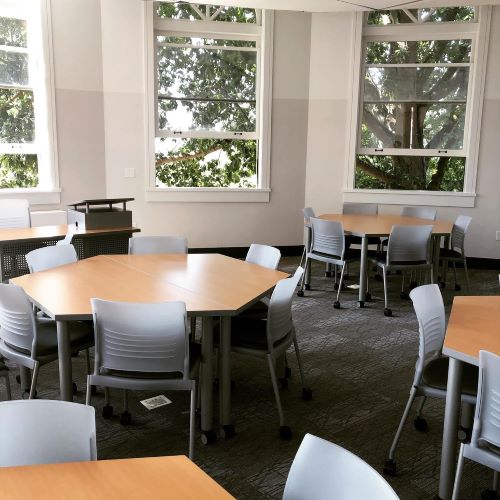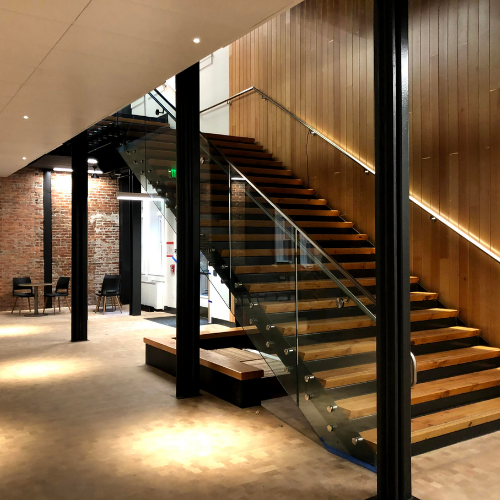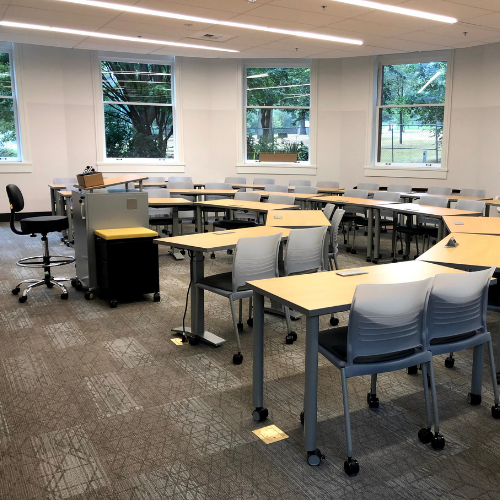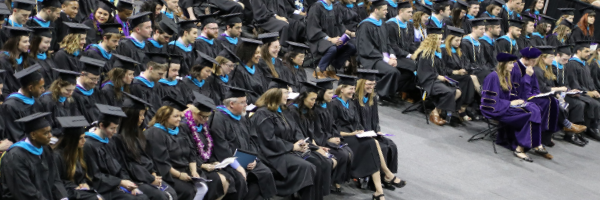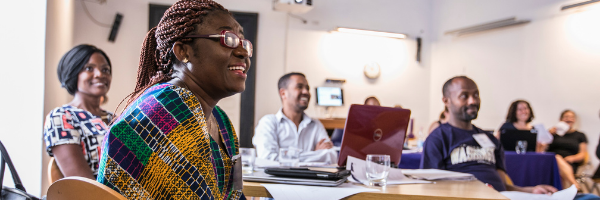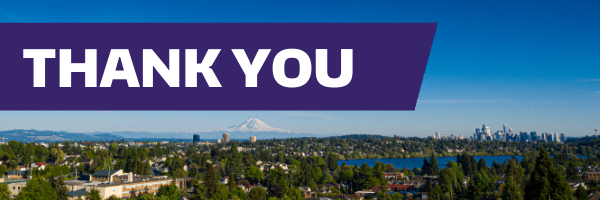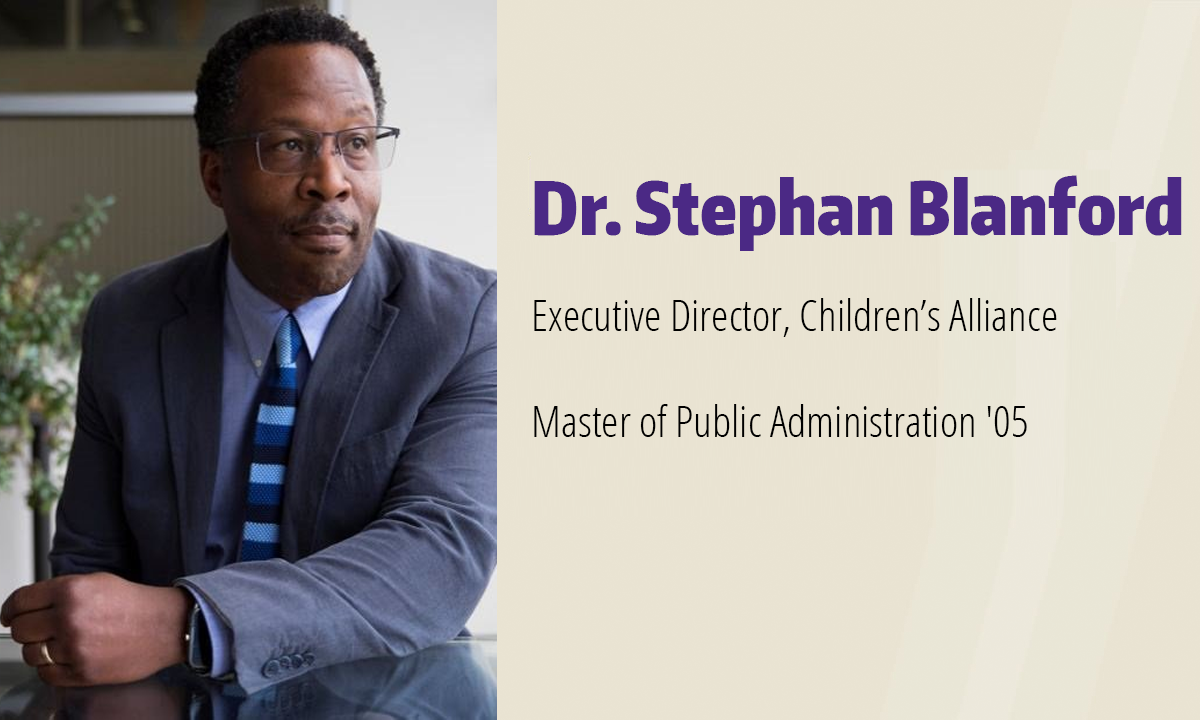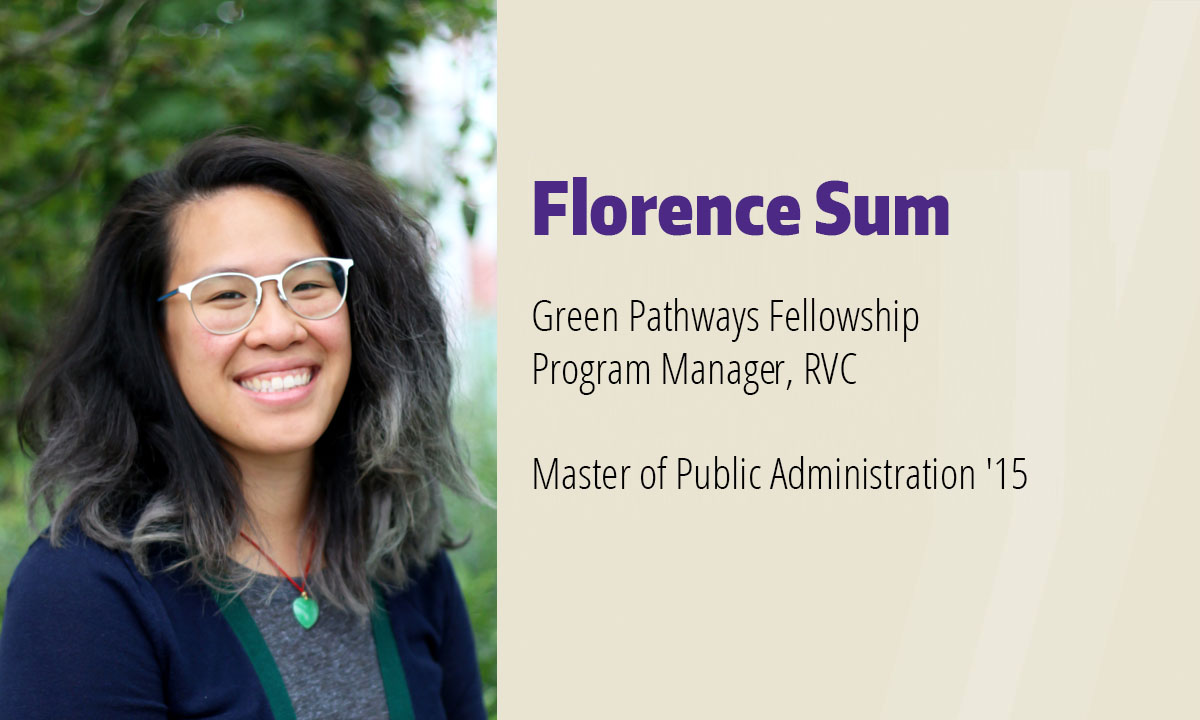As a Fellowship Program Manager at RVC – a nonprofit dedicated to building and supporting emerging nonprofit leaders of color – what are key takeaways you’d like everyone to know about your work?
As reflected in RVC’s mission, in order to promote social justice, you must cultivate leaders of color, strengthen organizations led by communities of color, and foster collaboration between diverse communities. The key takeaway is by investing in Black, Indigenous, & People of Color, Disabled, Trans, and Non-Binary folks, we will dismantle and transform the systems that target and harm these communities.
The work I am doing with leadership development through the Green Pathways Fellowship Program at RVC is what every workplace should be doing for everyone, especially leaders of color. This includes adjusting living wages and benefits for all positions based on the area they’re living in, including identities who are typically left out of workplace policies, ensuring that professional development is counted as paid hours, having a sizeable professional development budget, onboarding that equips employees to succeed (should be longer than 2 weeks), and creating a workplan for the first 6 months so employees are prepared and know what to do.
I believe that every person deserves to have their learning invested in, an environment that doesn’t scrutinize failure, paid a contribution that supports their livelihood, and a community to rely on.
BIPOC leaders know the solution to societal issues and the work I do is to support them to move issues in a way that honors the communities they are representing.
What is the biggest challenge you’ve had in your career and how did you address it?
As an East Asian-American, I have found that the white standard of communications for someone with a female appearance has been difficult in my career. There is a false sense of how people are supposed to communicate. Often, people are too concentrated on how people are communicating versus what they are communicating.
For example, when BIPOC people are speaking “passionately,” white people might feel attacked by the way content is delivered versus deeply listening to the message. Because of my outward appearance, people have assumed and desired my communication style to be soft, polite, quiet, and non-threatening. And, that’s not how I show up in spaces especially when I’m with folks whose values aligned. So, when people’s perceptions of me (especially those in power) and who I actually am don’t align, I have gotten in trouble. For a period of time, I was deflated.
However, I’ve learned to navigate this by being honest, vulnerable and transparent about who I am. I’ll name dynamics, try and open spaces for feedback, and hold myself accountable to my impact. I have learned and am continuing to learn how to reach people more effectively and clearly. I’m honing a habit where I ask people to repeat back what they heard or confirm my reflections to ensure we are all on the same page.
What are the most critical problems faced by people who work in your field? How do you think these problems should be handled?
Especially for BIPOC-led nonprofit organizations, there is a lack of capacity and resources. And, there’s a direct correlation between the two – the more resources a non-profit has, the more capacity it has. My hope is that organizations are not signing up for too many projects and overworking their staff, but that’s another conversation. Unrestricted Grants or Funds are super helpful and is one way to help non-profits provide resources to those in need. Now is not the time for Foundations to reduce sharing their resources in hopes of maintaining their own financial security for decades to come.
Our world is experiencing both a global health crisis and a resurgence of racial uprising and organizing against the carceral state. The time to fight is now. We need to continue to organize and build the infrastructures that BIPOC communities have been fighting for. Now is the time to invest, because we cannot go back to the way the world once was prior to the pandemic: people should not be experiencing hunger, lack of access to healthcare, be concerned about their safety through institutions like the police or ICE, and experiencing houselessness.
UW and the Evans School are committed to Diversity, Equity, and Inclusion. How are you addressing Diversity, Equity, and Inclusion in your work and personal life?
Equity is a core value reflected in my work and in my work environment – RVC consists of all staff members who are people of color. We are wrestling with how anti-blackness shows up in our organization at all levels. RVC has shown me over the years their willingness and commitment to learn, be accountable to our mistakes, and make an effort to do better based on our learnings. These types of changes are slow and can be frustrating. The phrase DEI isn’t necessarily used at RVC because it’s just the thing we do and are continuing to do so. In all that we do, we are thinking about who is at this table, who are we not connected to, how can we make sure we are accountable and building those relationships with Black, Indigenous, and people of color communities and how are we showing up (is it in a transactional way or in an authentic way?). This occurs across the board from our HR policies and our programming.
In my personal life, the way I work towards liberation is getting educated, grounded, and practiced in transformative justice. One effort towards that is through my time with the Healing Education for Accountability and Liberation (HEAL) program. HEAL works to provide healing and accountability circles for incarcerated people – the first of its kind in Washington State. Drawing on restorative justice practices, we explore topics such as trauma, shame, resilience, accountability, structural and generational violence, and their impacts. The participants engage in a rigorous accountability process, unpacking the dynamics that led to the harm, and finally, dialoguing with people in our community who have experienced profound harm. The plan was to enter the prison in March but plans have changed and we are adjusting as a collective of facilitators to move this work forward. I’m excited as to where I will grow alongside an incredible team.

